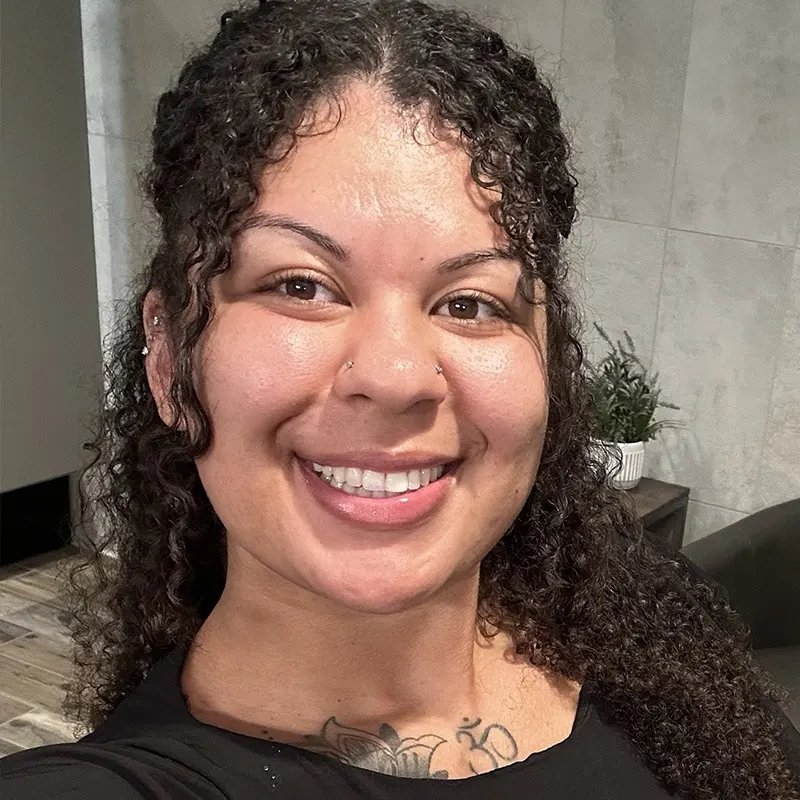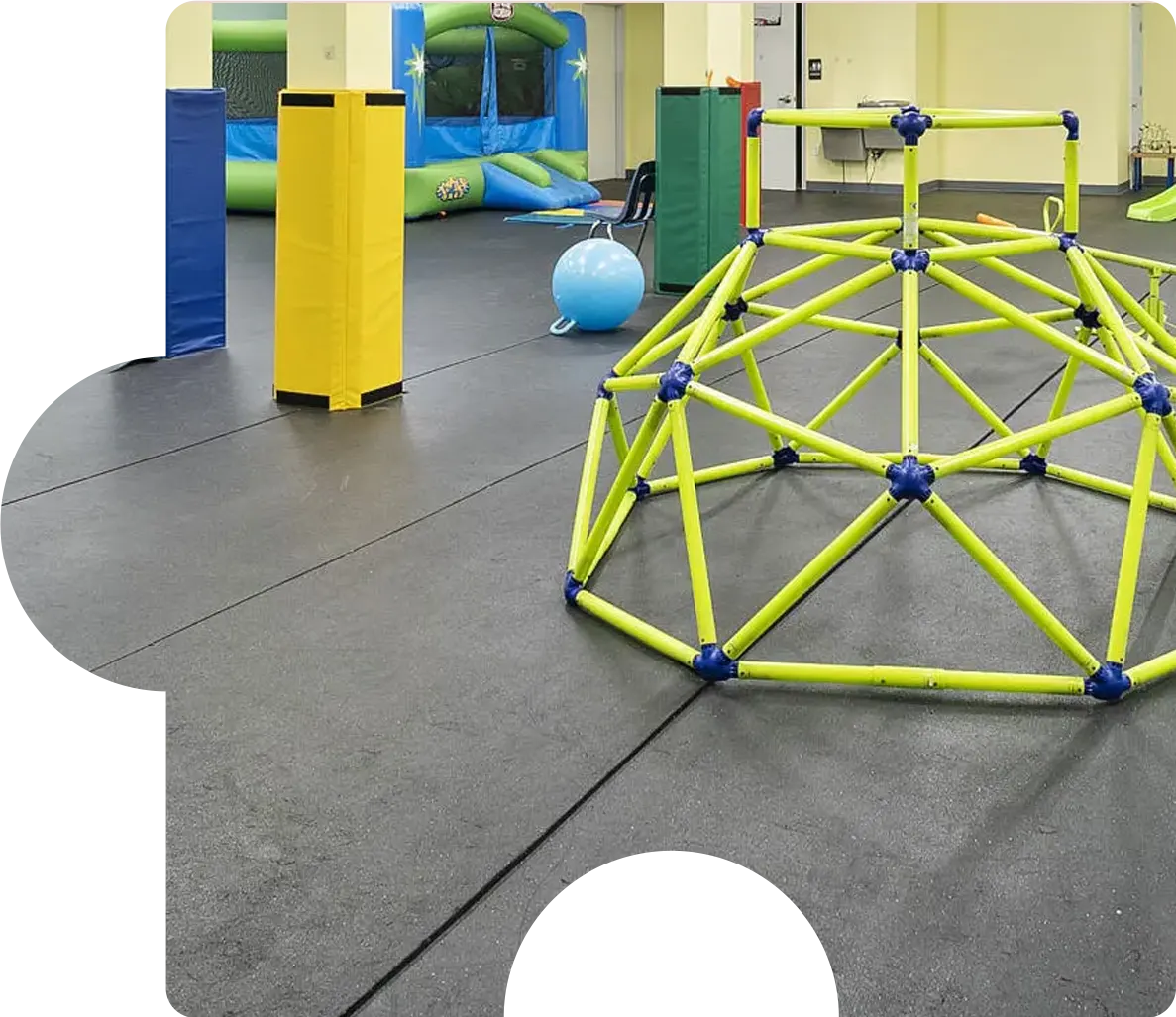
Preparing Your Child for Success in School
Classroom Readiness Program
The goal of our classroom readiness program is to prepare each child for successful participation in classroom environments through targeted skill development and support.
We utilize Applied Behavior Analysis (ABA) principles to develop and maintain essential foundational skills that enhance independence, social interaction, and classroom preparedness.
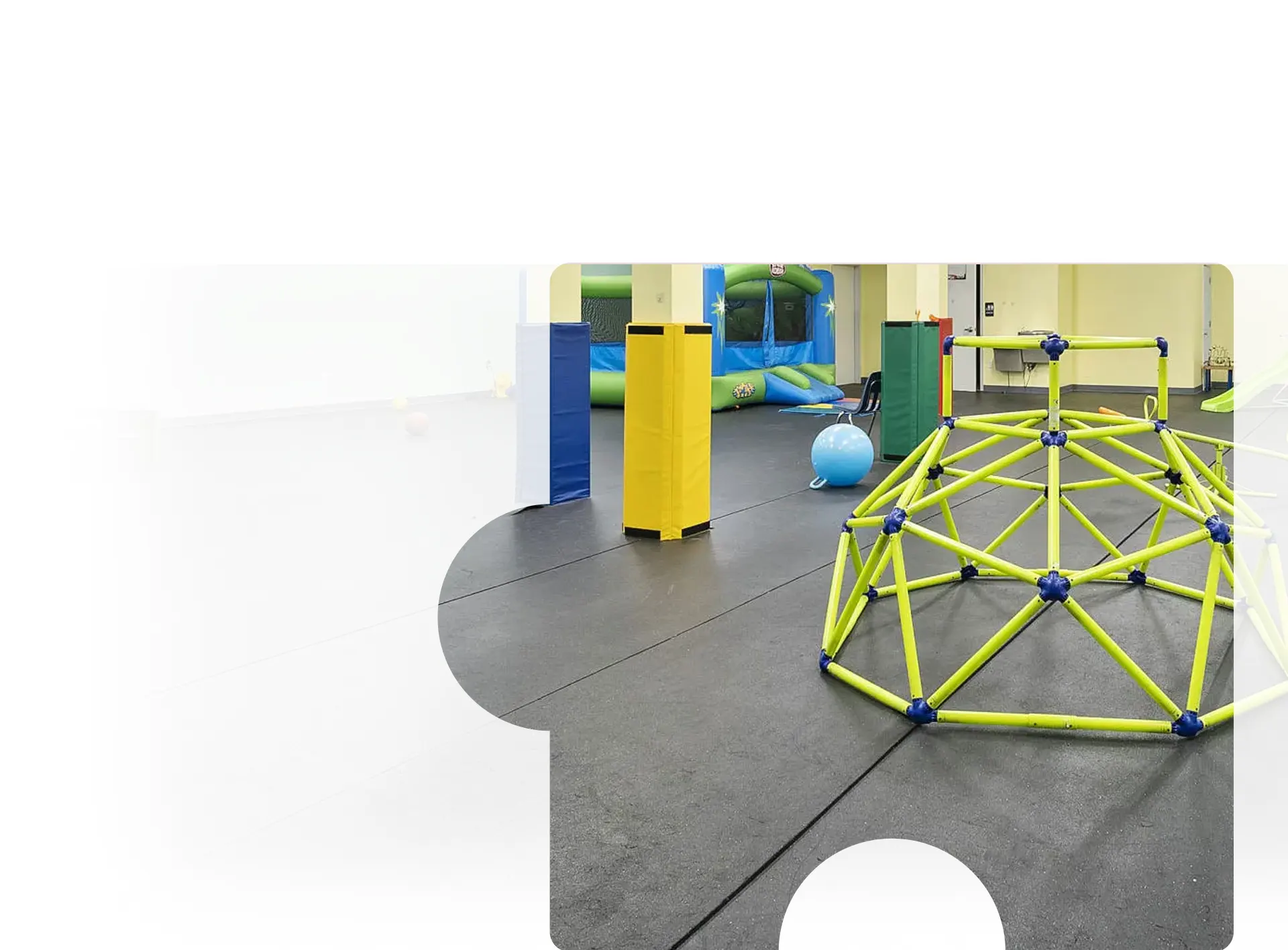
Each child is supported by their 1:1
behavior technician throughout the program to focus on:
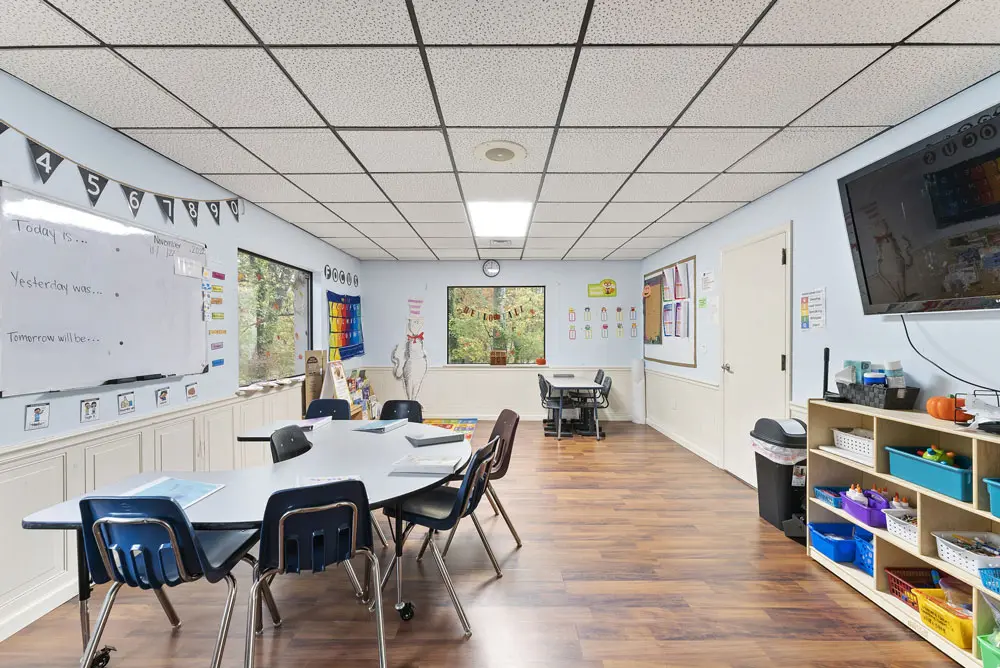
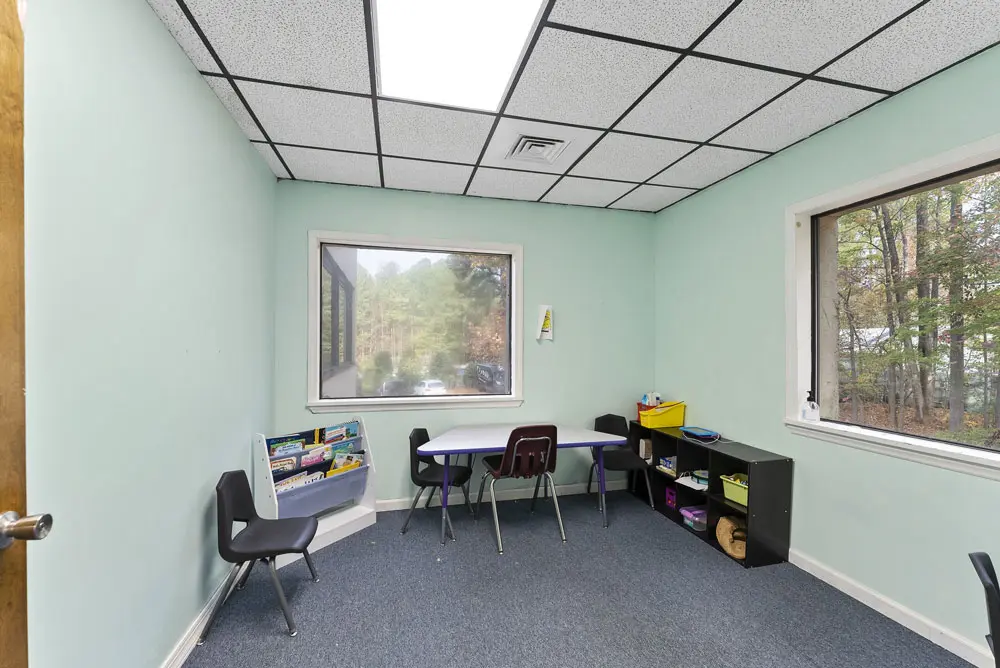
- Social skill development
Teaching children to engage appropriately with peers, including sharing, taking turns, initiating interaction
- Communication skills
Expanding expressive and receptive language and functional communication with adults and peers.
- Classroom routines
Following directions and daily schedules, discriminating instruction, raising hand, transitions.
- Motor skill development
Encouraging fine and gross motor skills required in the classroom like holding a pencil, cutting papers, etc.
Cardinal's
Locations
Clinic Address:
8433 N. Black Canyon
Highway, Phoenix AZ 85021
Community Services in: Mesa, Gilbert, Chandler, Tempe, Scottsdale, Phoenix, Avondale, Glendale, Peoria, Surprise, Goodyear, & Buckeye.
Clinic Addresses:
956 W. Chatham
St. Cary, NC 27511
135 State Ave S. 100,
Clayton, NC 27520
3911 Wrightsville Ave
Wilmington NC 28403
Community Services In: Cary, Apex, Raleigh, Morrisville, Clayton, Cleveland, Selma, Smithfield, Benson, Winston Salem, Greensboro, Kernersville, High Point, Four Oaks, Wilmington & Wilson Mills.
The classroom readiness program is
group-based but tailored to each child’s unique needs.
Our team comprises a lead classroom readiness program instructor, Board-Certified Behavior Analysts (BCBAs), and Registered Behavior Technicians (RBTs).
Their expertise and passion are evident in every session, making each child’s potential attainable.
This program is best suited for children of pre-school age and for children who need additional support before entering or re-entering a traditional classroom environment.
Our individualized programs are designed with specific needs, collaborating with parents, teachers, and other related providers.
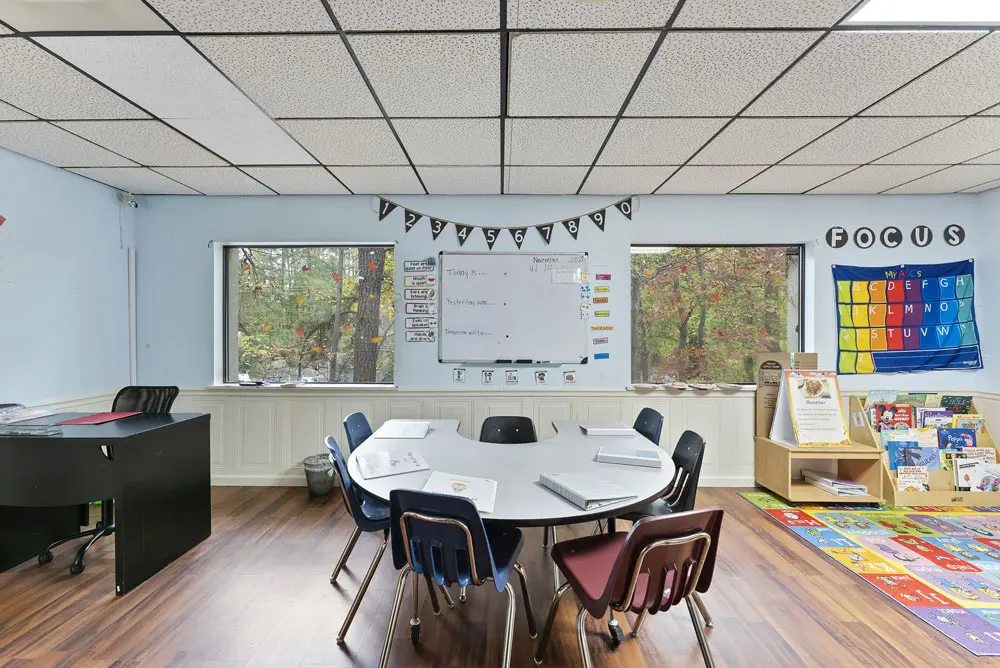
Tailored Strategies for Your Child’s Unique Needs
Cardinal's Personalized Approach to ABA Therapy
At Cardinal Pediatric Therapies, we believe each child’s ABA therapy must be tailored to their unique needs. We begin with a thorough evaluation to craft a personalized therapy plan aimed at the child’s behavioral goals. As the child progresses, we adjust our methods to suit their changing skills.
Providing therapy at home does more than ensure comfort, it also enables children to apply their new skills in their daily lives.
Our in-home ABA therapy teaches children essential life and social skills in a comfortable and relaxing setting. We heavily involve caregivers in our methodology, equipping them with effective ABA techniques for managing behavior and offering ongoing support.
Each therapy session is guided by a competent behavior technician or Registered Behavior Technician (RBT), committed to helping your child learn and adapt to new skills, handle challenging situations, and maximize their potential both at home and elsewhere.
Our partnership extends beyond your child; we work closely with YOU!
Coaching for parents is a fundamental part of our strategy, providing you with the knowledge and techniques to steadfastly back your child’s daily advancement.


Ensuring Your Child's Progress with
Insurance and Payment Flexibility
At Cardinal, we strive to make our in-home ABA therapy services both accessible and affordable. We partner with multiple insurance companies and offer flexible payment plans to accommodate various budgets.
We truly believe that financial difficulties should never stand in the way of a child’s needed care. Our aim is to aid your child’s development without causing financial strain, and we are fully committed to supporting their growth every step of the journey.
Resources for Autism Caregivers:
Your ABA Information Hub
At Cardinal, we recognize that navigating your child’s autism journey can be challenging.
Our in-clinic ABA services extend beyond therapy for your child to provide essential resources and support for you as well. We believe that parents and caregivers are invaluable partners in their child’s progress.
Now Trending




ABA Clinics Should Be Ran by BCBAs, Here’s Why

What Is Parent Training for Autism and How Can It Help Your Child?
Your Questions About In-Home
ABA Therapy Answered
How does in-home ABA therapy compare to clinic-based therapy?
The in-home delivery of ABA therapy allows for a unique, one-on-one learning setting, fostering natural growth and learning within the comfort of your own home. Home-based therapy offers relevant, personalized interventions, and realistic day-to-day learning opportunities, and greater involvement for the family members and caregivers.
What is the duration of each ABA therapy session at home?
How do you match therapists with families for in-home therapy?
Can in-home ABA therapy be customized for siblings or multiple children in the same household?
What materials or equipment do we need at home for ABA therapy sessions?
Ordinary household items or toys your child routinely engages with are typically the only material needed for therapy sessions. Additional materials relevant to your child’s therapy goals may occasionally be requested or provided by the therapist. The primary objective is to work with materials that are easily accessible and familiar to your child.
How are emergencies or unexpected situations handled during in-home sessions?
Our therapists are professionally trained to adeptly manage emergencies and unforeseen situations. Depending upon the specific circumstances, the therapist may opt to continue the session, postpone it, or seek immediate intervention. Each individualized behavior plan includes behavioral, medical, and other emergency plans.
Are there specific qualifications or certifications for therapists providing in-home ABA therapy?
Indeed, therapists facilitating in-home ABA therapy are often Registered Behavior Technicians (RBTs)or behavior therapists (BTs) on their way to becoming an RBT. All treatment plans are developed and maintained by Board Certified Behavior Analysts (BCBAs) who oversee all BT or RBT implementation. At Cardinal, we ensure that our therapists are consistently trained in principles of ABA, data-driven decision-making processes, and customized plan development.
How frequently are therapy goals and progress reviewed and updated?
The review and update of therapy goals and progress generally happens every six to twelve weeks. This can vary based on the individual progress and changing needs of the child. Data collection and analysis are consistently performed during therapy sessions to inform these modifications.
Is in-home ABA therapy effective for older children or teenagers?
Certainly, in-home ABA therapy can be instrumental for children and adolescents of all age groups. The tactics and specific interventions are customized in accordance with each client’s age, developmental stage, unique needs, and goals.
What support is available for parents and caregivers outside of scheduled therapy sessions?
At Cardinal, we offer a comprehensive support system for parents and caregivers that includes educational training sessions, customized resources, and steadfast communication routes. With these measures, families can enhance their understanding of ABA therapy, learn effective strategies to foster positive behavior at home, and witness the ongoing progress made throughout the therapeutic journey.
Questions? Get in Touch!
We're here to help




